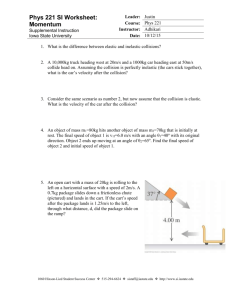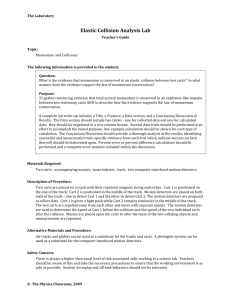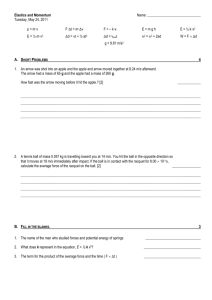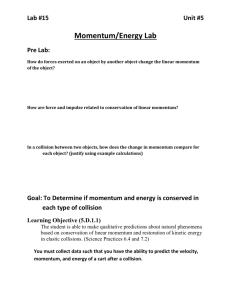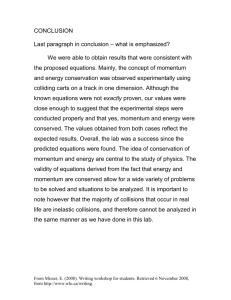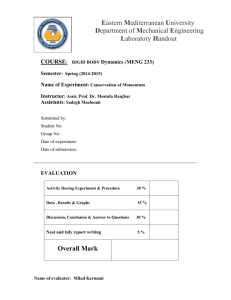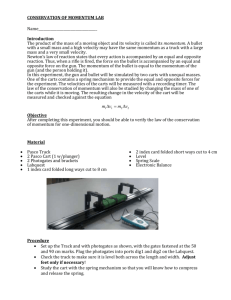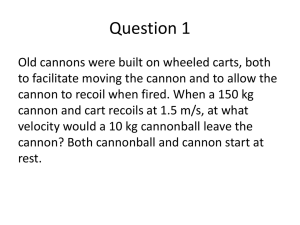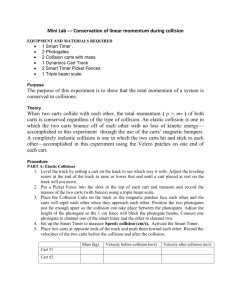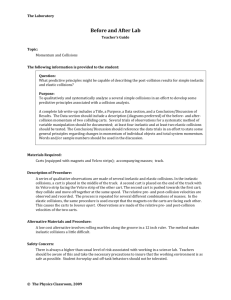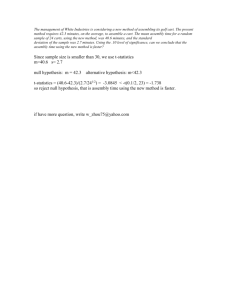Momentum Observation Lab
advertisement
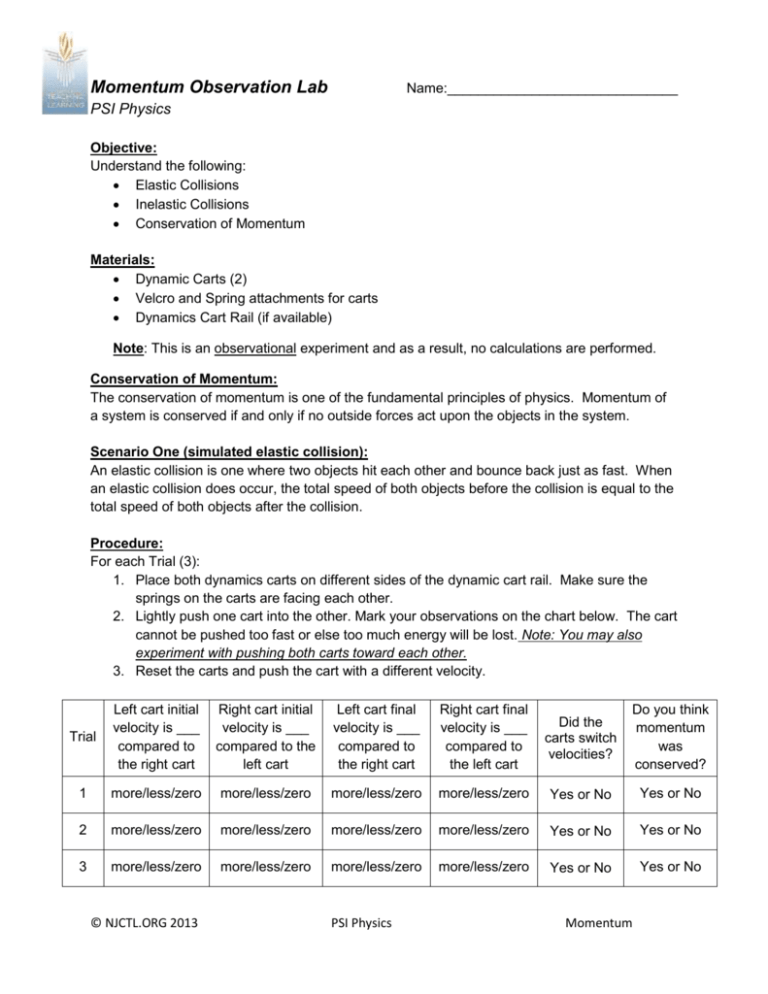
Momentum Observation Lab Name:______________________________ PSI Physics Objective: Understand the following: Elastic Collisions Inelastic Collisions Conservation of Momentum Materials: Dynamic Carts (2) Velcro and Spring attachments for carts Dynamics Cart Rail (if available) Note: This is an observational experiment and as a result, no calculations are performed. Conservation of Momentum: The conservation of momentum is one of the fundamental principles of physics. Momentum of a system is conserved if and only if no outside forces act upon the objects in the system. Scenario One (simulated elastic collision): An elastic collision is one where two objects hit each other and bounce back just as fast. When an elastic collision does occur, the total speed of both objects before the collision is equal to the total speed of both objects after the collision. Procedure: For each Trial (3): 1. Place both dynamics carts on different sides of the dynamic cart rail. Make sure the springs on the carts are facing each other. 2. Lightly push one cart into the other. Mark your observations on the chart below. The cart cannot be pushed too fast or else too much energy will be lost. Note: You may also experiment with pushing both carts toward each other. 3. Reset the carts and push the cart with a different velocity. Trial Left cart initial velocity is ___ compared to the right cart Right cart initial velocity is ___ compared to the left cart Left cart final velocity is ___ compared to the right cart Right cart final velocity is ___ compared to the left cart Did the carts switch velocities? Do you think momentum was conserved? 1 more/less/zero more/less/zero more/less/zero more/less/zero Yes or No Yes or No 2 more/less/zero more/less/zero more/less/zero more/less/zero Yes or No Yes or No 3 more/less/zero more/less/zero more/less/zero more/less/zero Yes or No Yes or No © NJCTL.ORG 2013 PSI Physics Momentum Scenario Two (Perfectly Inelastic Collision): A perfectly inelastic collision is where both objects stick together after they collide. This causes kinetic energy to be lost due to friction, sound, heat, or deformation of the objects. Also, because the objects are moving together, they have the same final velocity. Procedure: For each trial (3): 1. Place both dynamics carts on the rail again, making sure that they can stick together. 2. Push one cart lightly towards the other (which will be at rest). If they stick together, record your observations in the table below. If not, repeat the experiment until they do. Trial 1 2 3 Final observed velocity of combined carts in comparison to the velocity of the pushed cart No change / Less / More / Zero No change / Less / More / Zero No change / Less / More / Zero Do you think momentum was conserved? Yes or No Yes or No Yes or No Conclusion: 1. What are the 3 most interesting things you learned from this lab? 2. In order for momentum to be conserved in the collisions you observed, what must be true about the outside forces acting on the carts? Discussion Questions: 3. In this lab you learned what a perfectly inelastic collision is. Using this, what do you think a partially inelastic collision is? 4. In nature, which kind of collision do you think occurs the most, elastic, perfectly inelastic, or partially inelastic? Why do you think so? © NJCTL.ORG 2013 PSI Physics Momentum
